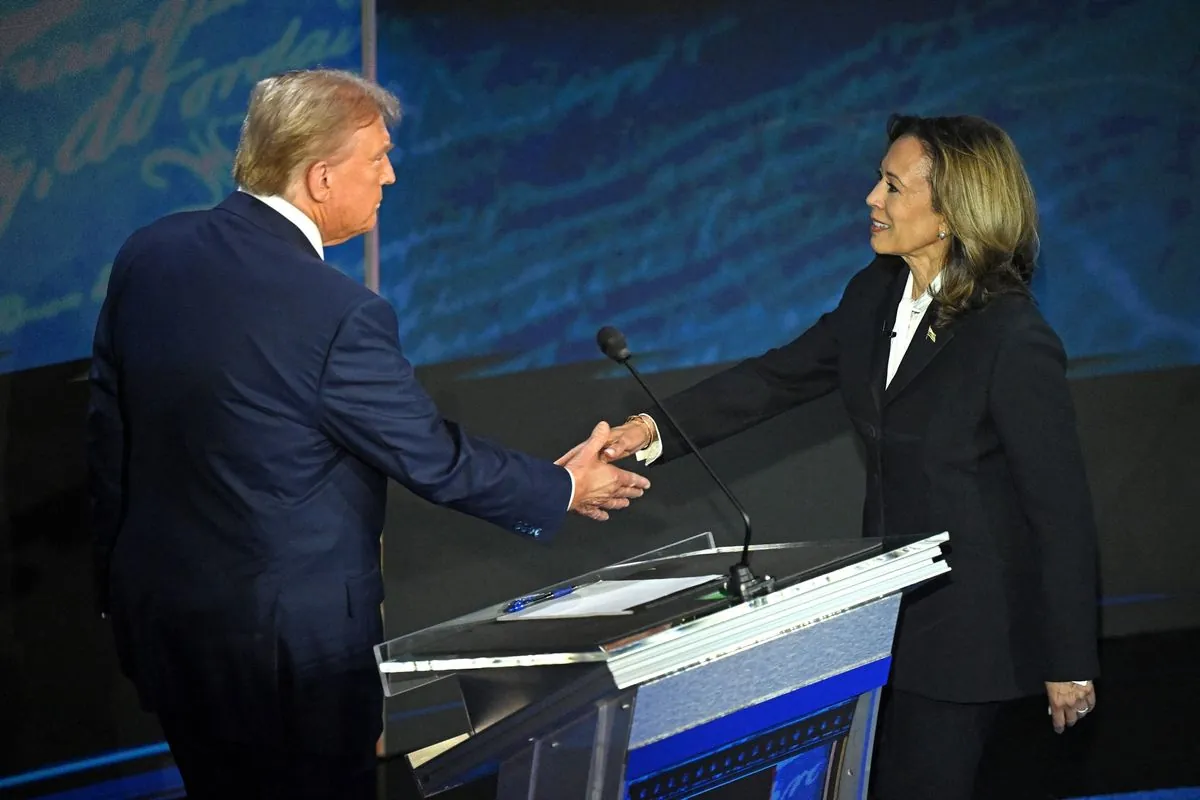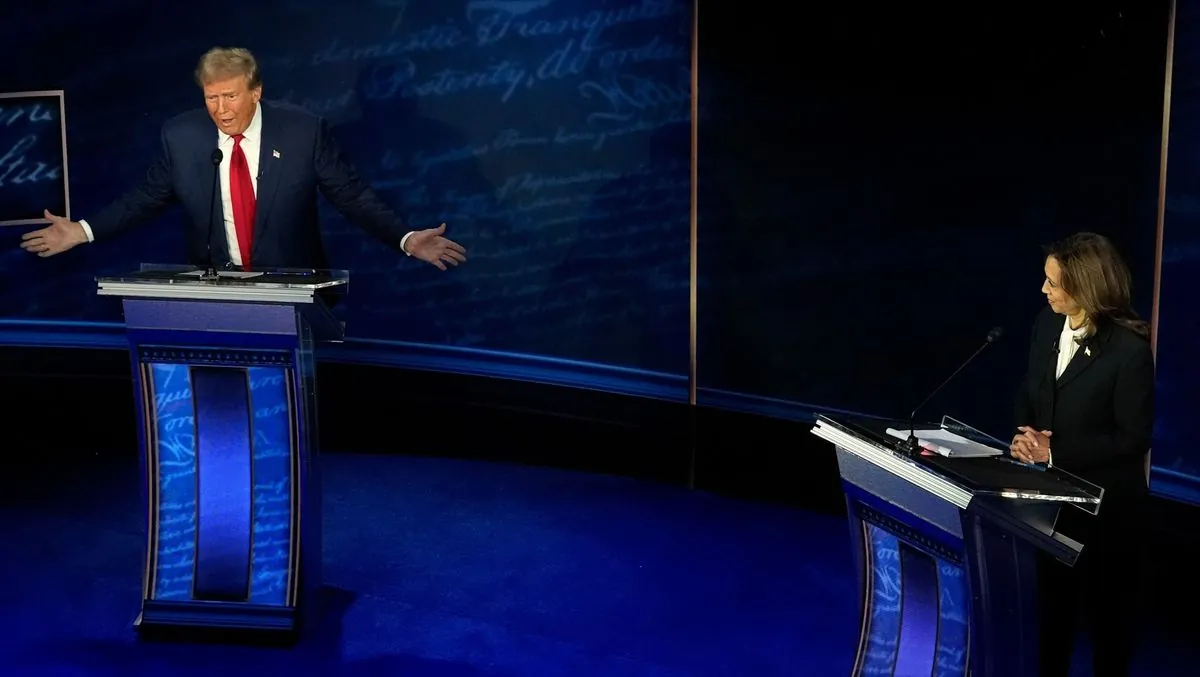GOP Leaders Sidestep Trump's Debate Performance, Contrast with Dem Reactions
Republican leaders avoid direct criticism of Trump's recent debate showing, differing from Democrats' open concern after Biden's June performance. The response highlights party dynamics and debate preparation importance.

In the aftermath of the recent presidential debate, Republican leaders have largely sidestepped direct commentary on Donald Trump's performance, presenting a stark contrast to the Democratic response following Joe Biden's debate showing in June.
Mike Johnson, the House Speaker, deflected questions about Trump's debate performance, focusing instead on a failed government funding plan. Similarly, John Thune, the No. 2 GOP leader in the Senate, avoided direct criticism when asked about missed opportunities to define Vice President Kamala Harris.
This reserved reaction differs significantly from the Democrats' response to Biden's debate performance 2 months and 16 days ago. At that time, many Democrats openly expressed concern, with some describing the situation as "panic-stricken."
Presidential debates have been a regular feature of U.S. elections since 1960, with the first televised debate between John F. Kennedy and Richard Nixon setting a precedent for the importance of television in politics. The establishment of the Commission on Presidential Debates in 1987 aimed to ensure nonpartisan debates, highlighting the significance of these events in the electoral process.
Some Republicans attributed Trump's performance to a lack of traditional debate preparation, which typically involves mock debates and extensive policy briefings. Senator Thom Tillis emphasized the importance of heeding expert advice in politics, recalling his own experience with debate preparation during his 2020 reelection campaign.
"If you don't know Trump, I don't know where you've been. Under a rock?"
This comment reflects the sentiment among some Republicans that Trump's well-established public persona might mitigate the impact of debate performances.
Critics noted missed opportunities to challenge Harris on key issues such as border security and inflation. The 2012 Obama-Romney debate introduced real-time reaction meters from undecided voters, demonstrating the evolving nature of debate analysis and the importance of addressing voter concerns effectively.
Trump's divergence into controversial topics during the debate raised eyebrows among some observers. This approach contrasts with historical debate moments that have become political catchphrases, such as Ronald Reagan's "There you go again" quip in the 1980 debate.
The muted Republican response to Trump's performance may be influenced by concerns about potential repercussions, given Trump's influence over the party's base. This dynamic highlights the complex interplay between party loyalty and critical assessment in contemporary American politics.
As the election season progresses, the impact of debate performances on voter perceptions remains a subject of keen interest. The 2016 debate between Hillary Clinton and Donald Trump was the most-watched in American history, underscoring the continued relevance of these events in shaping public opinion.

The increasing use of fact-checkers during debates in recent years adds another layer of scrutiny to candidates' statements, emphasizing the importance of accuracy and preparedness in these high-stakes political encounters.


































